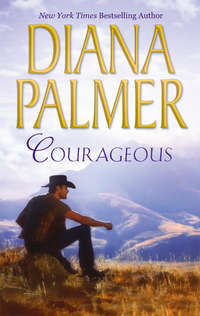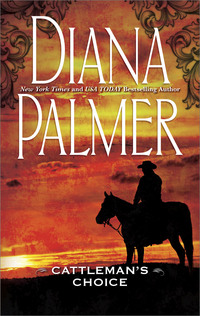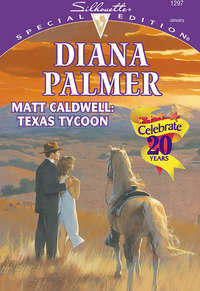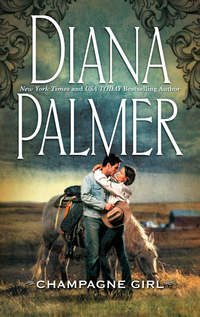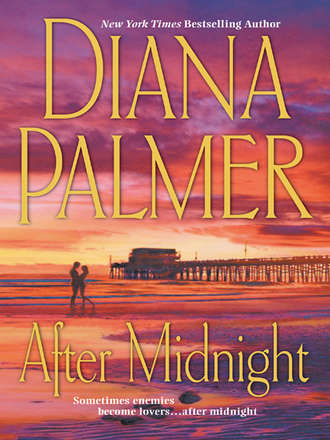
Полная версия
After Midnight
“Yes, please,” he replied with a grin.
She went out to get it, laughing at his irrepressible overreaction. He always made her laugh. She couldn’t resist going with him to political rallies where he was scheduled to speak, because she enjoyed him so much. He was in constant demand as an after-dinner speaker.
“Here you go,” she said a minute later, reappearing with two steaming cups. She put hers down and sat in the chair beside his desk with her pad and pen in hand.
“Thanks.” He was studying another piece of legislation on which a vote would shortly be taken. “New stuff on the agenda today, Derrie. I’ll need you to direct one of the interns to do some legwork for me.”
“Is that the lumbering bill?” she asked, eyeing the paper in his lean hands.
“Yes,” he said, mildly surprised. “Why?”
“You’re not going to vote for it, are you?”
He scowled as he lifted his cup of coffee, fixed with cream just as he liked it, and looked at her while he sipped it gingerly. “Yes, I am,” he replied slowly.
She glared at him. “It will set the environment back ten years.”
“It will open up jobs for people who can’t get any work.”
“It’s an old forest,” she persisted. “One of the oldest untouched forests in the world.”
“We can’t afford to leave it in its pristine condition,” he said, exasperated. “Listen, why don’t you meet with all those lobbyists who represent the starving mothers and children of lumbermen out west? Maybe you can explain your position to them better than I could. Hungry kids really get to me.”
“How do you know they were really starving and not just short a hot lunch?”
“You cynic!” he exclaimed. He sat forward in his chair. “Hasn’t anybody ever explained basic economics to you? Ecology is wonderful, I’m all for it. In fact, I have a very enviable record in South Carolina for my stand against toxic waste dumps and industrial polluters. However, this is another issue entirely. People are asking us to set aside thousands of acres of viable timber to save an owl, when people are jobless and homeless and facing the prospect of going on the welfare rolls—which is, by the way, going to impact taxpayers all the way from Oregon to D.C.”
“I know all that,” she grumbled. “But we’re cutting down all the trees we have and we’re not replacing them fast enough. In fact, how can you replace something that old?”
“You can’t replace it,” he agreed. “You can’t replace people, either, Derrie.”
“There are things you’re overlooking,” she persisted. “Have you read all the background literature on that bill?”
“When I have time?” he exploded. “My God, you of all people should know how fast they throw legislation at me! If I read every word of every bill…”
“I can read it for you. If you’ll listen I’ll tell you why the bill is a bad idea.”
“I have legislative counsel to advise me,” he said tersely, glaring at her. “My executive legislative counsel is a Harvard graduate.”
Derrie knew that. She also liked Mary Tanner, an elegant African American woman whose Harvard law degree often surprised people who mistook her for a model. Mary was beautiful.
“And Mary is very good,” she agreed. “But you don’t always listen to your advisors.”
“The people elected me, not my staff,” he reminded her with a cold stare.
She almost challenged that look. But he’d been under a lot of pressure, and she had a little time left before the vote to work on him. She backed down. “All right. I’ll work my fingers to the bone for you, but I won’t quit harping on the lumber bill,” she warned. “I don’t believe in profit at the expense of the environment.”
“Then you aren’t living in the real world.”
She gave him a killing glare and walked out of the room. It was to her credit that she didn’t slam the door behind her.
Clayton watched her retreat with mixed emotions. Usually, Derrie agreed with him on issues. This time, she was fighting tooth and nail. It amused him, to see his little homebody of an assistant ready to scratch and claw.
The telephone rang and a minute later, Derrie’s arctic voice informed him that Ms. Watts was on the line.
“Hello, Bett,” he told the caller. “How are you?”
“Worn,” came the mocking reply. “I can’t see you tonight. I’ve got a board meeting, followed by a cocktail party, followed by a brief meeting with one of the senior senators, all of which I really must get through.”
“Don’t you ever get tired of lobbying and long for something different?” he probed.
“Something like giving fancy parties and placating political adversaries?” Bett asked sarcastically.
Clayton felt himself going tense. “I know you don’t like my sister,” he said curtly. “But a remark like that is catty and frankly intolerable. Call me back when you feel like rejoining the human race.”
He put the phone down and buzzed Derrie. “If Ms. Watts calls back, tell her I’m indisposed indefinitely!” he said icily.
“Does she like virgin forests, too?”
He slammed the phone down and took the receiver off the hook.
Clayton phoned Nikki that evening. He didn’t mention Bett’s nasty remark or his fight with Derrie, which had resulted in her giving him an icy good-night and leaving him alone with cold coffee and hot bills. He had to depend on his district director for coffee, and Stan couldn’t make it strong enough.
“I’m not going to be able to turn loose for at least two weeks,” he said sadly. “I’d love to spend some time with you before we get our feet good and wet in this campaign, but I’ve got too much on my plate.”
“Take some time off. Congress won’t be in session much longer.”
“I know that. I am a U.S. Representative,” he reminded her dryly. “Which is all the more reason for me to push these so-and-so’s into getting down here to vote when our bill comes up. I can’t leave.”
“In that case, don’t expect me to wail for you.”
“Would I? Anyway, you need the rest more than I do,” he said on a laugh. “How’s everything going?”
“Fine,” she said. “Nothing exciting. A big fish washed up on the beach…”
“I hope you didn’t try to save it,” he muttered. “You’re hell to take on a fishing trip, with your overstimulated protective instincts.”
“I let this one go,” she said, feeling vaguely guilty that she was keeping a secret from him. It was the first time, too. “It wasn’t hurt very badly. It swam away and I’ll never see it again.” That much was probably true.
“Well, stay out of trouble, can’t you?”
“Clay, I’ll do my very best,” she promised.
“Get some rest. You’ll need it when autumn comes and the campaigning begins in earnest.”
“Don’t I know it,” she chuckled. “Good night.”
“Good night.”
She hung up the phone and went to lounge on the deck, watching the whitecaps curl rhythmically in to the white beach. The moon shone on them and as she sipped white wine, she thought that she’d never felt quite so alone. She wondered what Mr. Lombard was doing.
Chapter Three
Kane Lombard was sitting on his own deck with a highball, thinking about Nikki. It had been a productive day. Most days were, because the job was everything to him. But now, as he contemplated the moonlight sparkle on the ocean, he felt unfulfilled.
He was thirty-eight years old. He’d had a wife, and a son. There had been a twelve-year marriage which, while not perfect, at least gave him a sense of security. At least he’d been in love when he married, even if things had gone sour a few years later. Now he was among the ranks of the single men again, but without the youth and idealism that made marriage a viable prospect. He was jaded and somewhere along the way, he’d lost all his illusions about people. About life. He was like those waves, he thought, being aimlessly thrown onto the beach and then forgotten. When he died, there would be nothing to leave behind, nothing to show that Kane Lombard had lived on this planet.
That wasn’t totally true, he chided himself as he swallowed a sip of the stinging highball. He had the company to leave behind. The name would probably be changed somewhere down the line, though. Names didn’t last long.
He leaned back on the chaise lounge and closed his eyes. Nikki. Her name was Nikki, and she had black hair and green eyes and the face of an angel. He liked the way she looked, the way she laughed, as if life still had wonderful things to offer. He knew better, but she made him optimistic. He needed someone like that.
Not permanently, of course, he told himself. He needed an affair. Just an affair. Would she be willing? She seemed to find him attractive enough. If he took her out and bided his time, would she be receptive? He sloshed the liquid in the glass, listening to the soft chink of the ice cubes against the watery roar of the ocean. Perhaps she was lonely, too. God knew, there was no monopoly on loneliness. Like the air itself, it permeated everything. His eyelids felt heavy. He closed them, just for a minute…
It was dawn when he woke, still lying on the chaise lounge, with the chill morning air in his face. The glass, long since forgotten, had fallen gently to the deck and was dry now, the ice and whiskey melted and evaporated on the wood floor. He got up, stretching with faint soreness. His head was much better, but there were still vestiges of a headache. He stared out over the ocean, and was jarred from his thoughts when the telephone rang.
His housekeeper was apparently in residence, because the ringing stopped, to be replaced by her loud, stringent voice.
“Telephone, Mr. Lombard!” she called.
“I’ll take it out here,” he returned gruffly.
She handed him the phone and he nodded curtly as he took it, waving her away. “Yes?” he asked.
“I’m Todd Lawson, Mr. Lombard,” a deep voice replied. “I work for your father and brothers in New York at the Weekly Voice,” he prompted when there was a long pause on the other end of the line.
Kane recognized the name. Lawson was his father’s star reporter, if a man who was better at creating news than gathering it could be called a journalist.
“Yes, I know you,” Kane said. “What do you want?”
“Your father sent me to Charleston to do a little prospecting. He wants me to see what I can find on the Republican U.S. Representative incumbent, Seymour. I’ve just checked into a hotel here. Any ideas about a good place to start looking for skeletons?”
“I can’t help you. I haven’t lived in Charleston long enough to know many people. I only know Seymour through the mails and the telephone,” he added curtly. “If I put a step wrong, he’ll be over me like tarpaper, I know that. We had a sewage leak a couple of weeks ago, accidental, and he’s been after my neck ever since. He went on television to point fingers at me as a perfect example of a money-hungry anticonservationist.” He shook his head. “He’s gungho on this industrial pollution issue. It’s his number one priority, they say.”
“Interesting that he’s fighting for the lumber bill out west,” Lawson murmured, tongue in cheek.
“The habitat of an owl out west apparently doesn’t do him as much political good as digging out industrial polluters on his doorstep.”
“You said it.”
“Keep me posted, will you?”
“You bet.”
He put down the receiver. Seymour was an odd bird, he thought. The man had little material wealth, but his old Charleston heritage had helped put him in office. The backing of Senator Mosby Torrance hadn’t hurt, either. The junior U.S. senator from South Carolina was a personable man with an equally impeccable reputation, even if he had a failed marriage behind him. Mosby’s marriage had been very brief, Kane understood, and rather secretive, but that had been because of his bride’s tender age, his sources told him. He couldn’t quite remember, but it seemed that there had been some connection with the Seymours before that. He’d have to remember and tell Lawson. It wasn’t important enough to try to reach the reporter, even if he knew where to look. No matter. Lawson would call back.
In the campaign headquarters of Sam Hewett, candidate for the Democratic nomination to the U.S. House of Representatives for the district that included Charleston, South Carolina, a heated discussion was taking place between Hewett and his advisers.
“You can’t risk a personal attack on Seymour at this point,” Norman Lombard muttered through a cloud of cigar smoke. His dark eyes lanced the candidate, who was tall and thin and rather nervous. “Let us take care of anything in that line. My father owns the biggest tabloid in America and my brothers and I are solidly behind you, financially and every other way. You just shake hands and make friends. For now, worry about nothing more than the Democratic nomination. When the time comes, we’ll have enough to slide you past Seymour at the polls.”
“What if I can’t gather enough support?” Hewett asked uneasily. “I’m not that well-known. I don’t have the background that Seymour does!”
“You’ll have the name identification when we get through with you,” Norman said, chuckling. “My dad knows how to get the publicity. You’ll get the votes. We guarantee it.”
“You won’t do anything illegal?” the candidate asked.
The question seemed to be perennial in Hewett’s mind. Lombard sighed angrily and puffed on his cigar. “We won’t have to,” he assured the other man for the tenth time. “A little mud here, a little doubt there, and we’ll have the seat in our grasp. Just relax, Sam. You’re a shoo-in. Enjoy the ride.”
“I want to win honestly.”
“The last person who won honestly was George Washington,” Lombard joked cynically. “But never mind, we’ll do our best to keep your conscience quiet. Now, get out there and campaign, Sam. And stop worrying, will you? I promise you, it will all work out for the best.”
Hewett wasn’t as certain as his advisor appeared, but he was a newcomer to politics. He was learning more than he wanted to about the election process every day. He’d been idealistic and enthusiastic at the outset. Now, he was losing his illusions by the minute. He couldn’t help but wonder if this was what the founding fathers had in mind when they outlined the electoral process. It seemed a real shame that qualifications meant nothing at all in the race; it was a contest of personalities and high-tech advertising and money, not issues. But on that foundation, the election rested. He did want to win, he told himself. But for the first time, he wasn’t sure why.
It had thrilled him when the Lombards backed him as a candidate. It had been Kane Lombard’s idea initially. Kane liked Sam because they were both yachtsmen, and because Sam supported tax cuts and other incentives that would help his fledgling automobile manufacturing industry in Charleston. Mainly, Sam thought, it was because Clayton Seymour had taken an instant dislike to Kane and had done everything possible to put obstacles in his path when the auto manufacturing firm first located in Charleston. The antagonism had been mutual. Now, with Kane’s latest bad luck in having a sewage spill into the river, Seymour had attacked him from every angle.
Sam didn’t like dirty politics. He wanted to win the election, but not if it meant stooping to the sort of tactics Seymour and his mentor Mosby Torrance were using against Kane. The double-dealing at city hall had been shocking to Sam, with both politicians using unfair influence to delay building permits and regulatory requirements.
Privately, Sam thought a lot of their resentment was due to the national reputation of the tabloid Kane’s father and brothers owned in New York. It was increasingly focusing on politics and it had done some nasty exposes on pet projects of Senator Torrance. It had also made some veiled threats about going on a witch-hunt to drag out scandals in Congress, beginning with southern senators and representatives. That had been about the time Kane announced the building of his plant. It had also coincided with Seymour’s bid for reelection.
Having Kane so close to home was making Seymour and Torrance nervous. Sam began to wonder what they had to hide.
Nicole had driven her small used red sports car into the village market near the medical center to get milk and bread—the eternal necessities—and fresh fruit. She’d just walked onto her porch when she heard the sound of a car pulling to a stop behind her.
She turned, and found Kane Lombard climbing out of a ramshackle old Jeep. She wondered just for an instant where he’d borrowed such a dilapidated vehicle before the sight of him in jeans and a white knit shirt made her heart start beating faster.
He smiled at the picture she made in cutoff denim shorts and a pink tank top. That dark tan gave her an almost continental look.
“You tan well,” he remarked.
“Our ancestors were French Huguenots, who came to Charleston early in the seventeenth century to escape religious persecution in Europe,” she told him. “I’m told that our olive complexion comes from them.”
“I brought back the things you loaned me.” He handed her a bundle. “Washed and pressed,” he added.
“With your own two hands?” she teased.
He liked the way her eyes sparkled when she smiled. She made him feel young again. “Not quite.” He stuck his hands in his pockets and studied her closely, with pursed lips. “Come for a ride.”
Her heart skipped. She couldn’t really afford to get mixed up with her brother’s enemy, she told herself firmly. Really she couldn’t.
“Just let me put these things away,” she said.
He followed her inside and wandered around the living room while she put the perishable things into the refrigerator and the bread in the bread box.
“I should change…” she began.
“Why?” He turned, smiling at her. “You look fine to me.”
“In that case, I’m ready.”
She locked the door, grateful that she hadn’t any photographs setting around that might clue him in to her relationship with Clayton. Nor was there anything expensive or antique in the beach house. She and Clayton didn’t keep valuables here, and the beach house remained in the name of their cousin who also had access to it. That kept nosey parkers from finding Clayton when he was up here on holiday. Records on land ownership were not hard to obtain, especially for someone like Kane Lombard.
He unlocked the passenger door and helped her inside. “It’s not very neat in here,” he said, apologizing. “I use this old rattletrap for fishing trips, mostly. I like to angle for bass down on the Santee-Cooper River.”
“You don’t look like a fisherman,” she remarked. She clipped her seat belt into place, idly watching his hard, dark face and wondering at the lines in it, the silvery hair at his temples. He was older than she’d first thought.
“I hate fishing, as a rule,” he replied. He started the Jeep and reversed it neatly, wheeling around before he sped off down the beach highway. The sun was shining. It was a glorious morning, with seagulls and pelicans scrounging for fish in the surf while a handful of residents walked in the surf and watched the ocean.
“Then, why do it?” she asked absently.
“My father loves it. He and I have very little in common, otherwise. I go fishing with him because it gives me an excuse to see him occasionally—and my younger brothers.”
“How many do you have?”
“Two. No sisters. There are just the three of us. We drove my mother crazy when we were kids.” He glanced at her. “Do you have family?”
“Not many, not anymore,” she said, her voice very quiet and distant.
“I’m sorry. It must be lonely for you.”
“It’s not bad,” she replied. “I have friends.”
“Like the one who lets you share the beach house with him?” he asked pointedly.
She smiled at him, unconcerned. “Yes. Like him.”
Kane made a mental note to find out who owned that beach house. He wanted to know the name of the man with whom Nikki was involved. It didn’t occur to him then that his very curiosity betrayed his growing involvement with her.
All along the beach, people were beginning to set up lawn chairs and spread towels in the sun. It was a warm spring day, with nothing but a sprinkling of clouds overhead.
“I love the ocean,” Nikki said softly, smiling as her wide green eyes took in her surroundings. “I could never live inland. Even the freighters and fishing boats fascinate me.”
“I know what you mean,” he agreed. “I’ve lived in port cities all my life. You get addicted to the sight and sound of big ships.”
He must mean Houston, but she couldn’t admit that she knew where he was from. “Do you live here?” she asked.
“I’m on holiday,” he said, which was true enough. “Do you stay here, all the time?”
“No,” she confessed. “I live farther down the coast.”
“In Charleston?” he probed.
“Sort of.”
“What does sort of mean?”
“I live on the beach itself.” She did. She lived in one of the graceful old homes on the Battery, which was listed in the National Register of Historic Places and which was open to tourists two weeks a year.
He could imagine in what kind of house she normally lived. He hadn’t seen her in anything so far that didn’t look as if she’d found it in a yard sale. He felt vaguely sorry for her. She had no one of her own except her indifferent lover, and her material possessions were obviously very few. He’d noticed that she drove a very dilapidated red MG Midget, the model that was popular back in the 60s.
“Feel like a cup of coffee?” he asked, nodding toward a small fast-food joint near the beach, with tables outside covered by faded yellow umbrellas.
“Yes, I do, thanks,” she told him.
He parked the jeep and they got out. Nikki strolled to the beachside table and sat down while Kane ordered coffee. He hadn’t needed to be told how Nikki took hers. He brought it with cream and sugar, smiling mischievously at her surprise.
“I have a more or less photographic memory,” he told her as he slid onto the seat across from her.
“I’ll remember that,” she said with a grin.
He lifted his head and closed his eyes, letting the sea breeze drift over his darkly tanned face. It had a faintly leonine look, broad and definite, with a straight nose that was just short of oversized, a jutting brow with thick eyebrows, and a wide, thin-lipped mouth that managed to be sexy and masculine all at once. His eyes were large and brown, his pupils edged in black. They were staring at her with faint amusement.
“You look Spanish,” she blurted out, embarrassed at having been caught looking at him.
He frowned slightly, smiling. “My great-grandmother was a highborn Spanish lady,” he replied. “She was visiting relatives near San Antonio, where my great-grandfather was a ranch foreman. As the story goes, they were married five days after they met, leaving a raging scandal behind them when they moved to Houston to prospect for oil.”
“How interesting! And did they find any?”
“My great-grandfather was prospecting up around Beaumont when Spindletop blew its stack in 1901,” he told her. “He made and lost a fortune in two months’ time.” He didn’t add that his great-grandfather had quickly recouped his losses and went on to found an oil company.
“Poor man.” She looked up from the coffee she was sipping. “His wife didn’t leave him because he lost everything, did she?”
“She wasn’t the type. She stuck by him, all the way.”
“That doesn’t happen very often anymore, does it? Women sticking by men, I mean,” she added wistfully. “Now, marriages are expendable. Nobody does it for keeps.”
He scowled. “You’re very cynical for someone so young.”
“I’m twenty-five,” she told him. “Not young at all for this day and age.” She studied her brightly polished fingernails, curled around the foam cup. “For the rest, it’s a cynical world. Profit even takes precedence over human life. I’m told that in the Amazon jungles, they kill the natives without compunction to get them off land the government wants to let big international corporations develop.”


